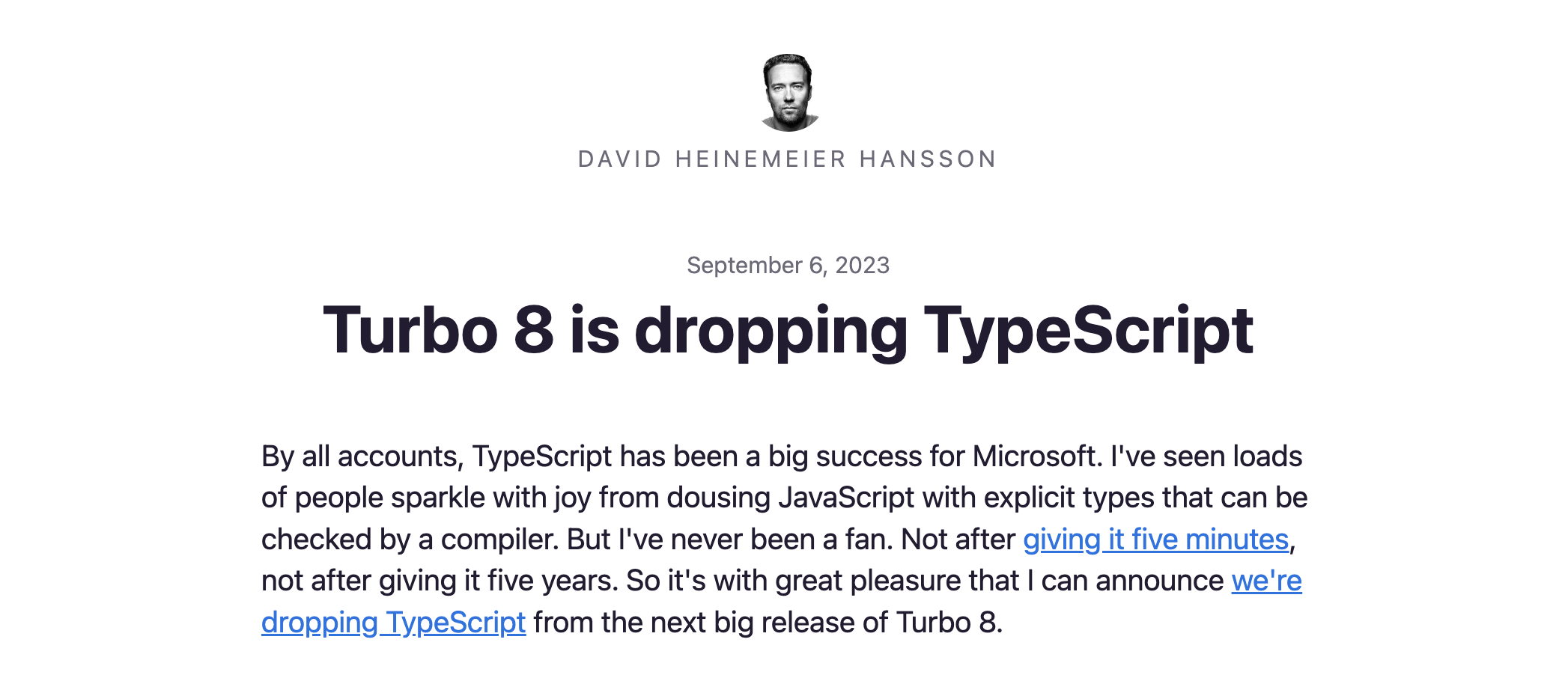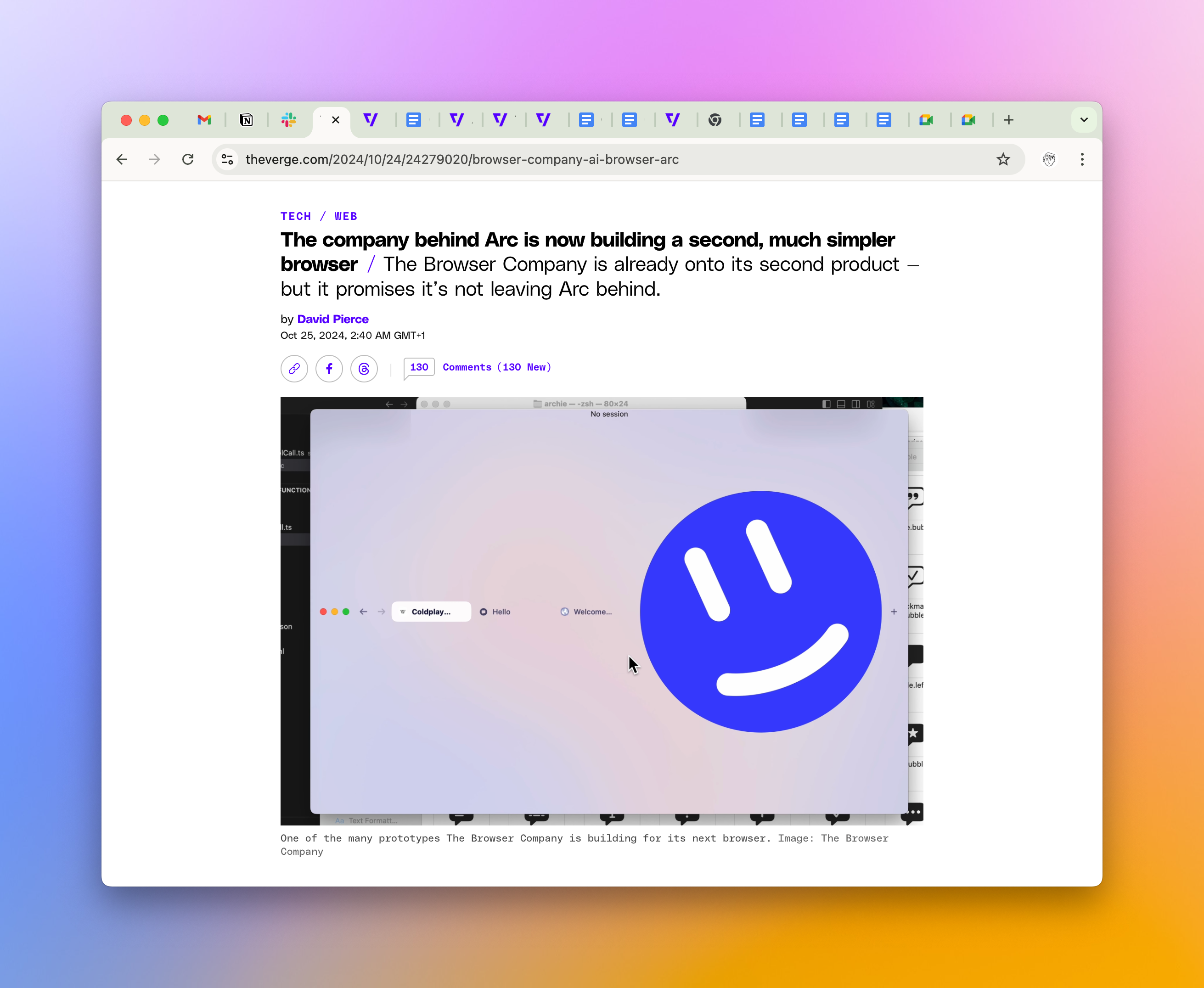Basecamp is a Contrarian Marketing Operation
Basecamp is well-known not because of its product but because its founders heavily leverage marketing and communications, eventually turning into contrarian marketing machines producing edgy posts and starting crusades just to get everyone’s attention.

Basecamp and DHH specifically know how to trigger people and use this all the time to drive awareness without spending a dime. They take stuff that’s happening anyway, like when they had issues with Apple because of Hey, and sometimes they write something edgy out of the blue.
They juggled the names of Basecamp and 37signals, with the latter being the current one, but most people know them as Basecamp, so this is what I’m using here.
Basecamp is known for building very opinionated and slightly old-fashioned products as a remote and bootstrapped company. There are many similar companies out there, but Basecamp is certainly the most recognizable. Why?
Several reasons. First, they started back in 2004 (the year they switched to building products) and have survived to this day, which is an impressive feat for a tech startup and helped generate awareness along their journey. Second, they built open-source products, making them popular in the community, and an entire tech stack in the form of Ruby on Rails, which once was a very reasonable choice for web development. Now, Ruby’s share is about 5%. People used to it might continue working with RoR, but practically nobody is getting into web development through it.
Most importantly, they knew the role of marketing and communications early on. They showcased their uniqueness. Wrote multiple books on the topics they were into. Ran a blog. Hosted a podcast. Ultimately, advertised their company as a great place to work. Writing a book in the 21st century won’t make you rich unless it’s a bestseller, but it creates status.
You see, Basecamp isn’t unique in being a bootstrapped company. The entire Indie Hacker community wants to get the same – become a millionaire and live off the income from your product, ideally without having any investors to report to. The challenge is it’s incredibly difficult. Only 5% of people there see any success. Andrew Wilkinson shared the failure story of Flow, his project management tool. This would likely happen if you tried building such a company yourself, although your mistakes would be different to his.
Their level of awareness and brand recognition is what makes Basecamp different from all of these indie hackers and small teams. This “secret sauce” enables them to sustain tech products operating in very competitive sectors. It’s practically free marketing. And because of their loudness and strongly-held beliefs, they manage to attract customers who are OK with their products the way they are. I heard a phrase that perfectly describes them: “Basecamp is a marketing agency with a software business on the side”.
Somewhere along the line, they realized that being loudly contrarian gets them attention. And what they actually do might be irrelevant, as it happened with the latest thing. DHH made a snarky commit that removed TypeScript support from their framework Turbo. Surprisingly, this coincided with their announcement of Once, which seems to be a new brand for software products you buy once and then figure out how to run and manage yourself.
And by this point, it truly feels too often they’re being contrarian for the sake of it. As if they’re specifically looking for a way to be different to everyon else. At the same time, they might be pushing people off with this approach Even their newer open-source projects, like Hotwire and Stimulus, are way less successful than Ruby on Rails was. Svelte is probably a good peer for their frontend framework, it’s also much less popular than React and Vue, yet still has 10x more stars on Github.
Basecamp’s products are opinionated and old-fashioned. The description for Basecamp itself, their project management and communications tool, sounds perfect for a small team like ours. I tried it several times, but it always felt like you had to commit to its vision, as it seemingly lacked any flexibility or customization. I get a feeling it’s primarily used by a small number of people who click with it or non-tech companies. Especially, considering how proud they are for supporting older versions (these are customers who literally don’t want updates).
Hey, their email service, made a big splash, primarily because Apple wasn’t letting it into the AppStore. That wasn’t the smartest idea, considering the people they went against. For DHH, it was like he fell into a well of free chocolate He even went to the US Congress to talk about it.
Hey is extremely opinionated, locked down to the point you can’t import your email history or use third-party apps with it, while their own apps are mediocre at best (largely because they’re cheaply made wrappers over their web version). I know it works for some people. It is ambitious, has an interesting story, competes with Gmail, and comes from Basecamp. I can tell you that they’d nice media coverage for this. But because of this “war” with Apple, they got 10x of what they would have if they just launched it peacefully.
I wanted to get back to the cheaply-made apps. This is a repeating theme here. Basecamp cares a lot about costs. One of the loudest recent crusades they went through was against cloud services like AWS. Don’t get me wrong, in 2023, it can be quite reasonable for a company like theirs. You have very predictable loads and aren’t planning to grow 10x; the tech stack is mature enough that running your own servers isn’t too different from virtual servers in the Amazon cloud, etc. But most importantly, they care about this because Jared and DHH get all the profits. They view it as a very reasonable and traditional approach for the business. And since their business is unlikely to start growing much faster, cutting down costs is very important.
It’s just unusual for the tech industry. Employees of publicly traded tech companies get RSUs that complement their income and align the incentives with the company. Employees of privately held tech startups get stock options, which align their incentives and might potentially make them a lot of money (while being worth slightly over zero on average). Employees at Basecamp get nothing other than their salary, which is unusual for the tech industry.
Basecamp might be a great place to work. I heard the usual tenure for their employees is about 6 years, which is a lot for the tech industry. Although, this is the number I heard before they fired a bunch of people for discussing “politics” (or, being tired of being challenged). This arrangement might be perfect for them, they understood this in advance, it can be “priced in” their salary, plus they’re getting other perks, such as an asynchronous and remote workplace.
I don’t have anything against this approach, as long as this was the agreement and both sides keep it. Mailchimp did a much worse thing: they didn’t offer equity, the founders boasted they’d never sell, then they sold to Intuit, and the employees who spent years building the product got nothing.
Just don’t tell me being bootstrapped is some kind of a blessing here. It’s just another way to run your company, no more or less noble than raising venture capital or crowdfunding on Kickstarter. And it doesn’t prevent you from sharing revenue. Todoist, which was also bootstrapped, eventually started doing revenue sharing via stock options.
For the same reason, I don’t understand companies that proudly say they will never attract venture capital or go public. It’s just not a great option for the team members, that’s all.
Jason and DHH are genius marketers. All I’m saying is, maybe we need to be a bit more skeptical before we rush to write this tweet or a news story and give them what they want for free. P.S. Yes, I get the irony here.




